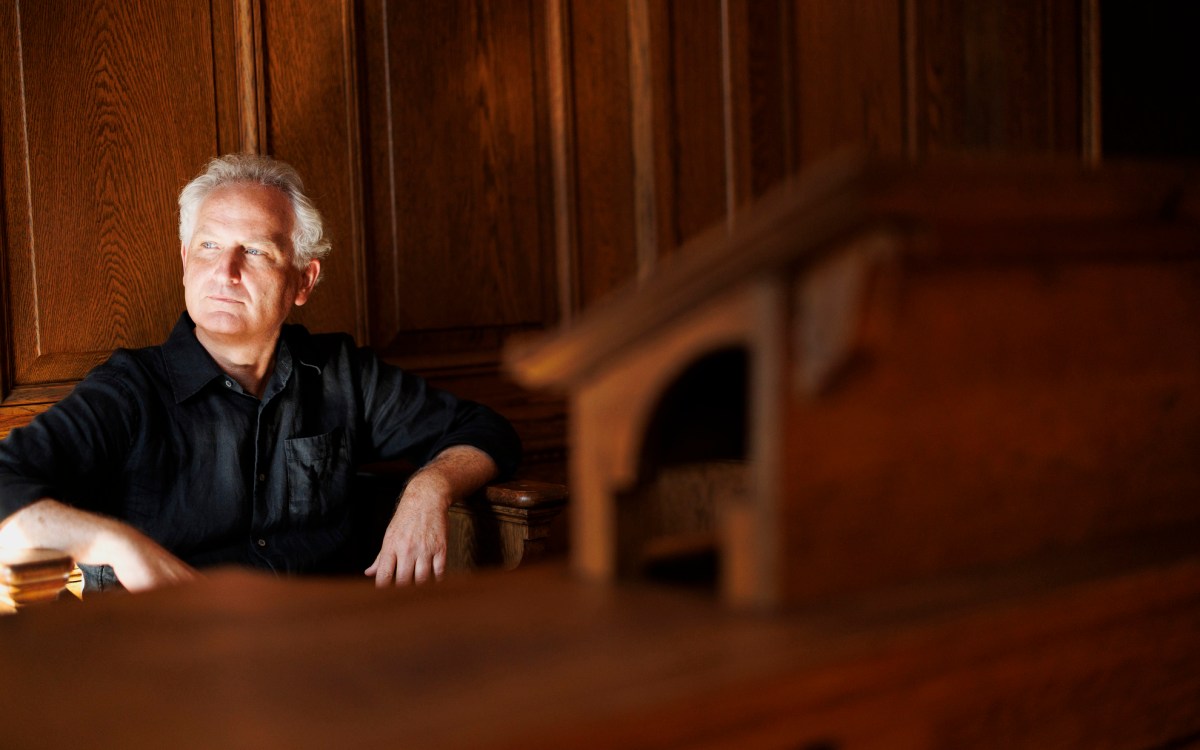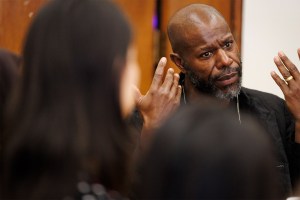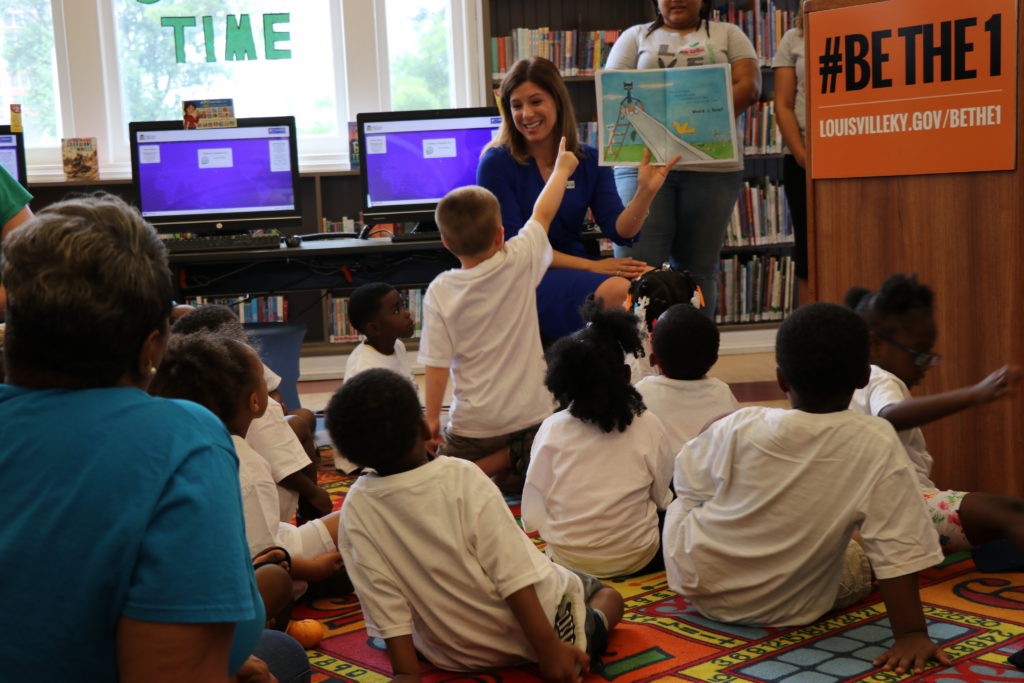
Reno-Weber reads to a group of school children at a Louisville library.
Photos courtesy of Metro United Way
Bluegrass symphony
“At my core is a desire to leave any place better than I found it, including the organization in which I work or the community in which I live.”
Before she became president and chief executive officer of Metro United Way, which serves seven counties in Kentucky and Indiana, Theresa Reno-Weber, M.P.P. ’08, was the first chief of performance and technology for Louisville’s metropolitan government. As head of the Office of Performance Improvement & Innovation, Department of Information Technology, and Department of Human Resources, her team helped launch the internationally recognized LouieStat performance platform, which tracks progress on operational goals. She has spoken around the world on performance management, data-driven decision making, and culture change.
Here, the former U.S. Coast Guard lieutenant shares why supporting Louisville is important to her and the impact Metro United Way is having on families in her community.
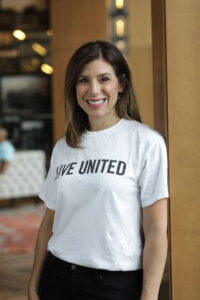
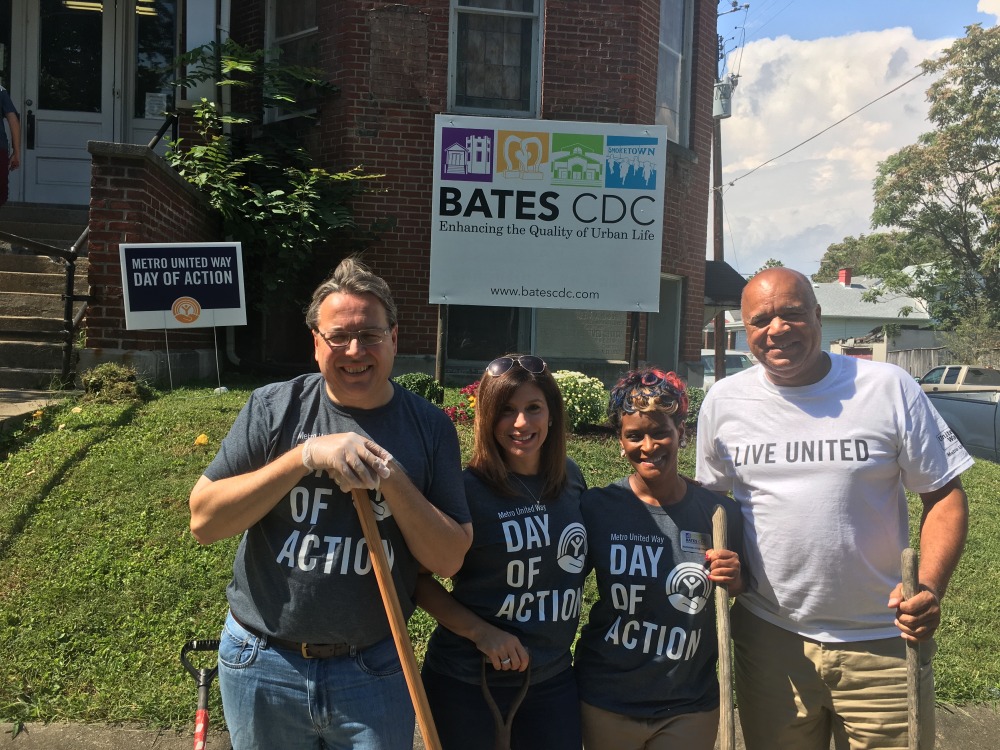
Reno-Weber leads a crew for Metro United Way’s Day of Action.
Photos courtesy of Metro United Way
Her own words
Think of a world-class orchestra — every musician is a master of their instrument and could wow an audience all on their own, but when they come together in concert, the sound they create is infinitely more complex and powerful.
Of course, each orchestra needs a conductor to make sure the whole works together by lifting up each musician at the appropriate time. Metro United Way is our community’s conductor, coordinating a network of service organizations that, together, solve complex problems and create powerful impact.
Often, people think of nonprofits as helping those with the least among us, living in the worst of conditions. And while we do help those who are struggling, we also support those whose situation is more secure, like Victoria and her son Kane.
When Kane was 2 years old and entering his first childcare center, the staff thought he might have a learning disability because his responses were nonverbal and he often withdrew from classroom participation. Things changed when Victoria enrolled him at one of Metro United Way’s early learning programs. With the support of the teachers, the classroom environment motivated Kane to be more interactive with space, objects, and his schoolmates.
Victoria wasn’t going to allow Kane to become a statistic as a child not ready to enter kindergarten, and neither were we. Research confirms that children with high-quality early care experiences, like those in our centers, score higher on measures of physical, cognitive, and socioeconomic competencies compared to their peers.
There are a lot of organizations making a difference in our community. Metro United Way works with them to reduce duplicated efforts and identify unfilled gaps. We do more than just fund our partners — we align them around shared community goals and mutually beneficial work. We’re informed by data and the lived experiences of those we serve, including the more than 100 nonprofit organizations, 50,000 donors, and 1 million people we help together. Our goal is to be a powerful catalyst producing better results faster.
I believe that what we are doing in Louisville can be a model for the rest of the country. The smaller size of our community makes it possible to truly wrap our arms around the problems and drive solutions that can create population-level impact. At the same time, we are still large enough that our interventions can translate to other metropolitan areas.
At my core is a desire to leave any place better than I found it, including the organization in which I work or the community in which I live. It’s why I’m raising my three children here. I want them to grow up in a strong, vibrant, healthy community where every person has a chance not only to survive, but to thrive.”
This story is part of the To Serve Better series, exploring connections between Harvard and neighborhoods across the United States.
